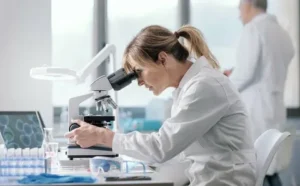Fertility treatments have advanced significantly in recent years, offering new hope to couples struggling with infertility. In Lahore, Pakistan, leading reproductive centers now provide a comprehensive range of procedures—from assisted fertilization to genetic testing—using modern medical techniques.
This article explains the top 10 fertility treatments currently available in Lahore and how each one works. It highlights the medical basis, process steps, and comparative outcomes to help readers make informed decisions about treatment options.
1. In-Vitro Fertilization (IVF)
IVF (in-vitro fertilization) is one of the most effective assisted reproductive techniques. It involves combining eggs and sperm in a laboratory and transferring a healthy embryo into the uterus.
How It Works:
-
Ovarian stimulation to produce multiple eggs
-
Egg retrieval and laboratory fertilization
-
Embryo culture for several days
-
Transfer of the best-quality embryo to the uterus
Technical Data
| Parameter | Description |
|---|---|
| Success Rate | 45–60% per cycle |
| Ideal Candidates | Women under 40 with blocked tubes or unexplained infertility |
| Treatment Duration | 4–6 weeks |
| Procedure Type | Assisted reproduction |
Bonus Tip: IVF success improves when embryos are genetically tested before transfer.
2. Intracytoplasmic Sperm Injection (ICSI)
ICSI is used for male infertility when sperm count or motility is low. A single sperm is directly injected into an egg under microscopic guidance.
Key Steps
-
Sperm selection and extraction
-
Microinjection into a mature egg
-
Embryo development and transfer
Comparison Table
| Feature | IVF | ICSI |
|---|---|---|
| Sperm Requirement | Normal count | Very low count acceptable |
| Fertilization Method | Natural lab fertilization | Direct injection |
| Recommended For | General infertility | Male factor infertility |
Bonus Tip: ICSI helps overcome severe male infertility and improves fertilization precision.
3. Intrauterine Insemination (IUI)
IUI (Intrauterine Insemination) involves placing washed sperm directly into the uterus around ovulation to enhance fertilization chances.
Process Overview
-
Ovulation tracking
-
Sperm preparation
-
Timed insemination procedure
Technical Specs
| Parameter | Typical Value |
|---|---|
| Success Rate | 15–25% per cycle |
| Ideal Candidates | Unexplained or mild male infertility |
| Recovery Time | Same day |
| Procedure Duration | 10–15 minutes |
Bonus Tip: Success improves with proper timing and hormonal stimulation.
4. Preimplantation Genetic Diagnosis (PGD)
PGD (gender selection) allows genetic testing of embryos before implantation to identify chromosomal or inherited disorders.
Process Overview
-
Embryo biopsy performed at the blastocyst stage
-
DNA analysis using next-generation sequencing (NGS)
-
Selection of genetically healthy embryos
Comparison Table
| Feature | Without PGD | With PGD |
|---|---|---|
| Risk of Genetic Disorders | Higher | Significantly lower |
| Implantation Success | 45% | 65%+ |
| Suitable For | All couples | Those with family genetic history |
5. Laparoscopy for Fertility Diagnosis and Treatment
Laparoscopy is a minimally invasive procedure used to diagnose and treat issues like blocked fallopian tubes, cysts, or endometriosis.
Advantages
-
Faster recovery
-
Minimal scarring
-
Direct visualization of reproductive organs
Technical Data
| Parameter | Description |
|---|---|
| Procedure Type | Diagnostic or corrective |
| Recovery Time | 1–3 days |
| Common Uses | Blockages, cysts, fibroids |
6. Hysteroscopy
Hysteroscopy involves examining the inside of the uterus using a thin, lighted device. It helps detect fibroids, polyps, or structural issues affecting fertility.
Key Benefits
-
Outpatient procedure
-
Immediate diagnosis
-
Enables corrective actions during the same session
Bonus Tip: Hysteroscopy is often paired with laparoscopy for comprehensive evaluation.
7. Male Fertility Treatments
Male infertility can result from hormonal imbalance, varicocele, or poor sperm quality. Treatments include medication, hormonal therapy, and surgical correction.
Technical Overview
| Cause | Treatment Type | Expected Outcome |
|---|---|---|
| Hormonal Deficiency | Hormone therapy | Restored sperm production |
| Varicocele | Surgical repair | Improved sperm quality |
| Low Motility | ICSI or IUI | Higher fertilization rate |
8. Advanced Semenology Testing
Advanced semen analysis evaluates sperm count, motility, morphology, and DNA integrity.
Benefits
-
Identifies underlying sperm defects
-
Helps select suitable fertility treatment
-
Guides ICSI and IVF planning
Bonus Tip: Combining advanced semenology with AI-based imaging increases diagnostic accuracy.
9. Treatment for Sexual Dysfunction
Sexual dysfunction can lead to fertility challenges for both men and women. Medical assessment identifies causes such as hormonal imbalance, anxiety, or vascular issues.
Treatment Options
-
Hormone regulation
-
Psychotherapy
-
Medication for erectile or ovulatory function
10. Management of Ambiguous Genitalia
Ambiguous genitalia refers to unclear genital development in newborns due to hormonal or genetic causes.
How It’s Managed
-
Genetic testing for accurate diagnosis
-
Hormone therapy
-
Reconstructive surgery by specialists
Technical Summary
| Factor | Approach |
|---|---|
| Diagnosis | Genetic and hormonal analysis |
| Treatment Timing | Based on medical and parental consultation |
| Goal | Healthy physical and psychological development |

Things to Consider Before Making a Decision
-
Age Factor: Female fertility declines sharply after age 35.
-
Medical History: Identify any hormonal or reproductive disorders.
-
Laboratory Standards: Choose accredited labs following international protocols.
-
Genetic Screening: Recommended for couples with family disorders.
-
Emotional Preparedness: IVF and related treatments can be emotionally demanding.
Common Questions
What is the most effective fertility treatment?
IVF and ICSI remain the most effective for complex infertility cases.
Is genetic testing necessary for all IVF cycles?
It is optional but strongly recommended for couples with genetic conditions.
How long does it take to complete a fertility cycle?
A complete IVF or ICSI cycle typically takes 4–6 weeks.
Can men also receive fertility treatments?
Yes, male infertility is treatable through hormonal therapy or surgical procedures.
Are these treatments safe?
Yes. Modern fertility procedures in Lahore follow strict medical standards.
Make the Right Decision
The field of reproductive medicine in Lahore is advancing rapidly. Understanding the range of available fertility treatments helps couples make informed, timely decisions. Always seek advice from qualified medical professionals and choose the treatment that best aligns with individual health needs and long-term goals.



